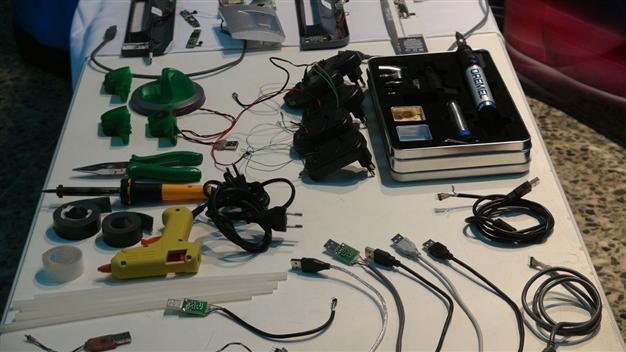Turkish gov't to increase penalties for illegal wiretapping with draft law
Nuray BABACAN ANKARA – Hürriyet

Illegal eavesdropping became a hot topic of debate after PM Erdoğan made public that wiretapping devices had been found in his home office on Dec. 21, 2012. DHA photo.
The penalties for illegal wiretapping are to be strengthened in a government-led draft law which has stirred reactions from the opposition for increasing the justice minister’s power on the judiciary.
The draft law, on which the government is currently working, will increase the penalties for illegal wiretapping as well as limiting the wiretapping done by the permission of Turkey’s Directorate of Telecommunication (TİB), which is the sole authority over all of the wiretapping and surveillance activities of security units.
The penalties for those who leaked the wiretappings will be increased. The penalties for the officials, who used their authority to wiretap illegally, will also be regulated with the draft law. The use of wiretapping and audio surveillance as part of the investigations will be limited.
Wiretapping with the use of a court decision will be banned if the name of the person who is wiretapped is given inaccurately to the court while requesting the permission. The authority to use the audio surveillance will also be limited.
The organized crimes which do not use force and violence will no longer be within the scope of the crimes included in the 164th and 165th articles of the Turkish Criminal Procedure Code, which concerns the “decisions to allow wiretapping and recording”.
The period of wiretapping will also be limited, with the draft law. Wiretapping which does not include any criminal case or information will have to be deleted immediately.
The penalties will be increased for those who failed to delete such wiretaps. The authorities and prosecutors who fail to delete such recordings will face prison term starting from one year. The prosecutors who include the wiretaps with details concerning personal life into the indictment will face prison terms.
Illegal eavesdropping became a popular topic of debate after Prime Minister Recep Tayyip Erdoğan made public on Dec. 21, 2012, that wiretapping devices had been found in his home office.
In areas under the Gendarmerie’s jurisdiction over the past 11 years, some 470,000 people have been subject to eavesdropping, officials from the Gendarmerie Command’s intelligence unit told members of Parliament’s Eavesdropping Examination Commission in March 2013.
Parliament’s Eavesdropping Examination Commission was formed in January 2013 with support from the ruling Justice and Development Party (AKP), the Republican People’s Party (CHP) and the Nationalist Movement Party (MHP) for the purpose of outlining and preventing violations of privacy and freedom of communication.
